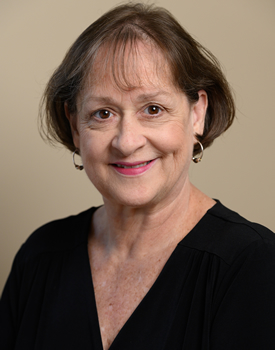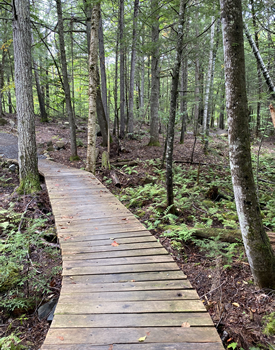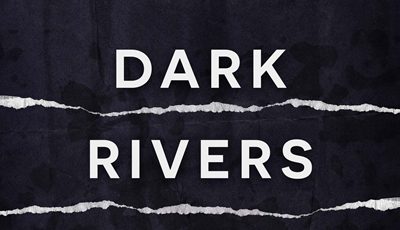

Features Up Close: Lynne Reeves
The Business of Keeping Secrets
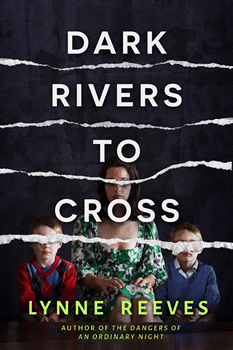 By Dawn Ius
By Dawn Ius
Lynne Reeves is in the business of keeping secrets. As an active school and family counsellor, her career demands confidentiality—at all costs.
But that doesn’t mean her experiences in that role haven’t inspired her second career: that of a novelist. This is certainly the case for her latest release, DARK RIVERS TO CROSS, an emotional page-turner that asks the question: At what point should a secret be revealed?
This is the very question Lena Blackwell grapples with. For 20 years, Lena has kept her two sons close by, teaching them how to run their successful river lodge in Northern Maine, an inn sheltered by acres of pine forest. It’s the perfect spot for her son, Luke—but her adopted boy, Jonah, isn’t content to hide away in the wilderness.
When Jonah decides he wants to search for his biological parents, Lena knows she must try to stop him—or risk both of her children learning about their tragic past, a past that could put into motion a deadly reckoning.
In this interview with The Big Thrill, Reeves talks about how she taps into the emotional side of her thrillers, the impact of trauma on families, and the haunting power of secrets.
Oof. DARK RIVERS TO CROSS is an emotional novel that really made me think hard about “secrets”—which ones are important to keep, and which ones need to come out in the interest of the greater good. What was the “secret” that provided the catalyst for this book?
While I never write about any person specifically, I often hear stories with similar themes. When should I tell my child he’s adopted? Should I ever tell my new partner about a past sexual assault? These are never simple questions for me to answer, nor are they easy scenarios to hold in my mind. It’s in writing novels that I explore these universal issues by building a fictional narrative around the dilemma.
Ultimately, this novel deals with the sacrifices a mother is willing to make for her children—which is a deep enough theme on its own. But you also explore some important and timely issues—inherited trauma, adoption, mental illness, etc. What do you hope readers take away from this story?
I always begin the process of discovering a story by imagining characters grappling with a social issue of our time. I’ve witnessed first-hand how adverse childhood experiences and trauma can profoundly impact families, even many years after they occur. I hope DARK RIVERS TO CROSS allows readers to examine these issues through the lens on one mother’s struggle to protect her children from the truth of their origin stories, regardless of what she had to do to shield them from it.
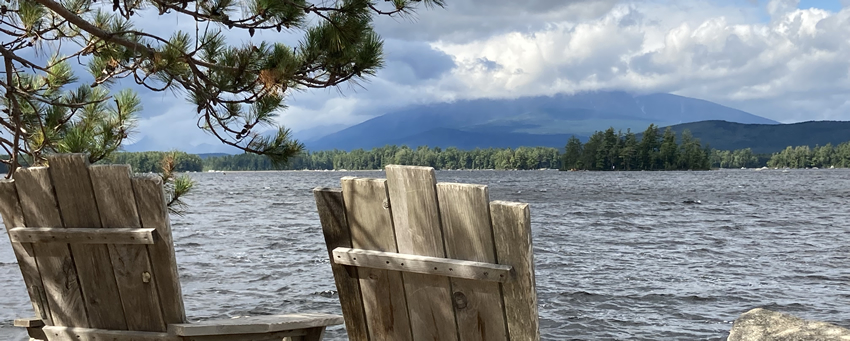
View of Mount Katahdin across Millinocket Lake in Maine, an area that helped inspire the setting of DARK RIVERS TO CROSS
When not writing fiction, you are also a family counsellor, which would certainly explain why writing about “family” seems to come somewhat naturally for you. How does your “day job” inform your fiction, and specifically, how did it help you write this story?
It’s been astounding to me how many people are haunted by the secrets about their lives they keep from their children. When they gain enough perspective and confidence to finally share the details they choose to reveal, it’s also amazing to see how much freer they are, and how much closer they are to their children. I’ve always in some way written about that. In DARK RIVERS TO CROSS it is the central theme, it’s the totality of plot.
Had Lena been your patient and presented to you the choice she must make—between honesty and spinning the lie to keep her boys safe—what advice would you have offered her?
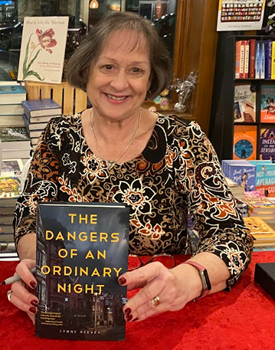
Reeves on tour at Savoy Bookshop in Rhode Island for The Dangers of an Ordinary Night in November 2021
First, I would have met her where she was; I would make space to simply listen. No one really does that for Lena. Nic and Marli try to, but they also try to convince her she is safe when she is not. When it comes to whether to be honest with her sons or spin the lies, I would have explained to her that there are different ways of knowing. It turns out her children may have more than an inkling that something painful lies hidden in their past without ever being told what it is. And I hope I would be able to help her see that there is a difference between secrecy and privacy. That there is a truth she could reveal without overwhelming Luke and Jonah in the complexity and entirety of her full story.
Each of the characters is well written, and of course, as a stepmother, I connect with Lena, but I was also fascinated by the differences—and similarities—between brothers Jonah and Luke. Who was more challenging to write, and why?
Luke and Jonah were both wonderful characters to write. I wanted Luke to immerse himself in nature, fully at home to live along the river in the woods. From the start, I knew Jonah would reject everything about living off the grid in the wilderness. Playing Lena’s sons off against each other truly added a depth to the story. They became quite real to me through the writing. I hope readers recognize the complexities of the sibling relationship in them.
I’ve never been to Maine, but it almost comes to life as its own character in DARK RIVERS TO CROSS. I’d love to know a little more about the setting. Why did you choose it? What aspects were important for you to weave into the novel top bring it to life for readers?
Living in Massachusetts, I was inspired by my family trips to neighboring Maine. I love the rugged landscape described in Henry Thoreau’s Maine too. I chose this setting not just because of its beauty, but also because the harsh conditions can be unforgiving. It proved to be a perfect backdrop to explore the nature and nurture question: What impacts us more, our biology or our environment? And as remote as it is, it’s stunningly beautiful. I wanted the novel to feel like an escape for readers.
DARK RIVERS TO CROSS is a twisty-turny novel with an explosive ending. Without providing spoilers, can you share a little about your process for crafting such a page-turner? What tips would you offer aspiring authors of suspense?
For me, I must know the ending of a novel before I can begin writing a draft. I may not know the specific choreography of the climax, but I know who is at the center of the questions who could do something like this and why would they do it? Knowing the answers to these questions allows me to layer in the tension and conflict, to ratchet up what is at stake for the character at the heart of the novel. I love the domestic suspense genre. Families are a never-ending source of conflict and drama. My novels give me a place to dig deep on the consequences of certain unresolved issues, the ripple effect of not sharing our hurts, and our truths.
What can you share about what you’re working on next?
I’m hard at work on another domestic suspense novel about three women and the darker emotional terrain of deciding to be a mother. At its emotional core, the novel examines whether the desire to raise children can ever match the reality of what it takes to love them. And of course, there are lots of twists and turns and surprises.
- AudioFile Spotlight: March Mystery and Suspense Audiobooks - March 17, 2025
- Africa Scene: Shadow City by Natalie Conyer - March 17, 2025
- The Ballad of the Great Value Boys by Ken Harris - February 15, 2025

